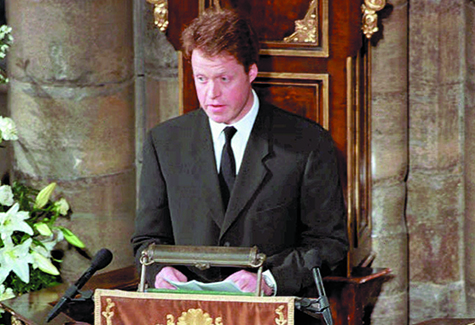The Most Difficult Speech: The Eulogy
The remembrance of a loved one provides comfort and closure.

At many funerals, the religious leader presiding over the service is the person giving the eulogy, yet too often it’s painfully apparent that this person, though well-intentioned, did not know the deceased well – or at all. Thus, his words may offer little comfort or closure to grievers. A more personal and knowledgeable approach is required. But how does one choose the words and demeanor that will fulfill the purpose of a eulogy?
Having given eulogies for both my father and mother, and perhaps a dozen close friends, I know how daunting this responsibility can be. Here are a few suggestions for delivering what may well be the most difficult speech one could ever give:
As with any other type of speech, how you organize the eulogy is critical. Among the first things to decide is the purpose you wish to achieve. To best attain that purpose, should the tone be solemn, light or something in between? Sometimes a unifying theme, built around a specific period in the individual’s life (youth, working years, old age, etc.) or a particular characteristic (sense of humor, generosity, artistic ability, etc.), can help in finding a focus.
The best eulogies are sincere in thought, purposeful in language, well paced and just long enough to achieve your desired goals. Meaningful anecdotes drawn from your own experience, or from family and others who knew the person, add valuable perspectives.
Provide Insights, Not Chronology
A eulogy should be an evocative remembrance of the deceased’s life. Avoid presenting a simplistic chronology from birth to death; rather, talk about what that life meant to those who loved or knew the person. In one of his last speeches, Martin Luther King Jr. prophetically noted that, “the quality, not the longevity, of one’s life is what is important.”
If you’re a relative, address the individual’s contribution to family life, stressing what characteristics or personal qualities will be most missed. If you’re a friend, talk about how the friendship started, its basis and what you gained from that relationship. If you’re a work colleague, illustrate how this person improved the organization or the workplace environment.
“No one expects you to have the delivery of a great orator
or the stage presence of an actor. Just be you; that is enough.”
You, as the speaker, should accept that the audience is not there to judge you, but rather to pay respects to a loved one or friend. Your delivery should be brief, but clear; appropriate, but not trite. If you are so overcome that you can’t continue, there is no shame in stopping to regain your composure. As Shakespeare once wrote, “Tears water our growth.”
“Don’t worry about delivering a perfect speech,” writes Garry Schaeffer, author of A Labor of Love: How to Write a Eulogy. “No one expects you to have the delivery of a great orator or the stage presence of an actor. Just be you; that is enough.”
“Writing and delivering a eulogy is a noble gesture worthy of thought and effort,” adds Schaeffer. “This is an opportunity to make a contribution to a memorial service; a contribution your friends and family will remember for a long time.
“Think of a eulogy as a gift to yourself and others. Embrace the opportunity to brighten an otherwise dark time.”
